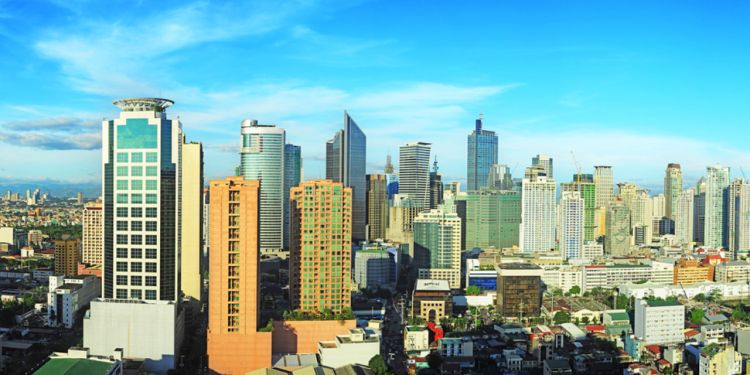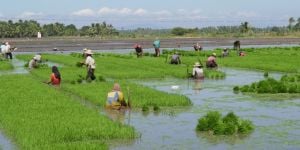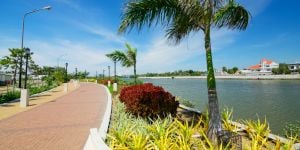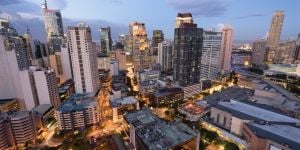
With its thriving business sectors, skilled workforce, and a government committed to enhancing employment opportunities, the Philippines offers an array of possibilities across various industries. From bustling metropolitan cities to emerging tech hubs, this country is brimming with potential for foreign professionals with the right skills, mindset, and determination.
The Philippines has become conscious of the urgency of developing its economy further so that it can compete with other Asian countries. In 2023, at the World Economic Forum (WEF), President Børge Brende lauded the Philippines for its high gross domestic product (GDP) growth, surpassing other countries in Southeast Asia. Nowadays, the country provides many opportunities that attract not only foreign professionals but investors as well. Hence, finding a job in the Philippines should not be a difficult task, provided you have the qualifications and skills required locally. Take the time to inquire about the labor market's requirements and working conditions and regulations before proceeding. Also, consider getting a free CV review at TopCV.
Please note that if a job can be performed by a Philippines national who has the correct skill set, then priority will be given to the local professional.
The economy of the Philippines
Once called the 'Sick Man of Asia', the Philippines is now running for the title of 'fastest-growing economy in the world' together with China, Vietnam, and India. The pre-pandemic growth was due to strong exports, despite the significant slowdown of investment growth and with consumption growth moderated. Positively, it is believed that sustained economic growth is likely to continue due to its productive investments in physical and human capital.
Post COVID-19, the Philippine Gross Domestic Product (GDP) showed a growth of 6.4 percent in the first quarter of 2023. This was, however, the lowest growth registered after seven quarters when the country started to recover from the pandemic in the second quarter of 2021.
On the other hand, foreign investors seem to trust the anti-corruption platform set up by the former President of the Philippines. However, much remains to be done. Indeed, the public transport system needs to be improved, as poorly planned and built roads very often gives rise to traffic jams. Airports, ports, and the electricity network, which is quite expensive (the highest rate in the whole of Asia), also have to be redefined. Finally, the Philippines often experiences natural disasters such as typhoons.
Promising sectors in the Philippines
According to experts, the Philippine labor market is more robust than ever. This is demonstrated by the strong growth rate in accordance with the country's recent economic performance. Remember that the Philippines represent a strong rival to many big and developed Asian countries.
In 2023, more job opportunities have been seen as the economy bounces back. The Philippines has observed aggressive hiring in the manufacturing, mining and services sectors lately.
According to the Philippines Statistics Authority, the highest-paying jobs in the Philippines have been recorded in the following:
- Among the various time-rated workers on a full-time basis, the highest average monthly wage rate was recorded for mathematicians, actuaries, and statisticians in insurance, reinsurance, and pension funding, except for compulsory social security. Average salaries for the above positions are approx p75,000 per month.
- Computer network professionals in computer programming, consultancy, and related activities; information service activities ranked second at approx p65,000 per month.
- Meanwhile, geologists from two different industry groups came in third and fourth at approx p60,000 per month, architectural and engineering activities and related technical consultancy, mining of coal and lignite; extraction of crude petroleum and natural gas; and other mining and quarrying, respectively.
- Making the top five is production supervisors and general foremen engaged in electricity, gas, steam, and air conditioning supply at p50-55,000 per month.
Other occupations under Information and Communications Technology (ICT) were also included in the top 10 highest-paid jobs in the Philippines, such as software developers in medical transcription activities; and system analysts plus electronics engineers, both in computer programming, consultancy, and related activities; information services activities.
To successfully land a job in the Philippines, your skills should be in demand and should not take a position away from the local workforce. Currently, the most in-demand skills in the Philippines are statistical analysis skills, data mining skills, coding skills, database integration skills, interpersonal and communication skills, writing skills, teaching skills, organizational skills, etc.
Regarding Manila, the capital city, the most in-demand jobs are the following:
- data scientist- average p141,500/ $2541 US per month;
- software engineer- average p50,000/ $900 US per month;
- actuary- average p60,000/ $1077 US per month;
- full-stack developer- average p85,000/ $ US1526 per month;
- IT consultant average p75,000/ $1347 US per month;
- software programmer- average p50,000/ $900 US per month;
- social media specialist- average p35,000/ $630 US per month;
- application development analyst- average- p35,000/ $630US per month;
- back-end developer- average p50,000/ $898 US per month;
- graphic designer- average p35,000/ $630 US per month;
- administration manager- average p35,000 / $630 US per month;
- sales development manager- approx p175,000 / $3100 US per month;
- accountant- approx p35,000 / $ 630 US per month;
- recruitment specialist- average p35,000 / $630 US per month;
- ESL teacher- average p25,000 / $500 US per month;
- marketing specialist- average p30,000/ $538 US per month.
Job hunting in the Philippines
The following are some of the useful job websites to use when job hunting in the Philippines:
There are, of course, other ways to look for a job in the Philippines. Those who are creative and go the extra step get more results. Recruitment agencies of note in the Philippines are Manila Recruitment, HR Spectacles and Coretto Global Recruitment.
Word of mouth and networking are other invaluable tools when looking for work in the Philippines. Go beyond Linkedin! Recruitment fairs and events are also popular in the Philippines; check out the official dates here. ·
Preparing for a job Interview in the Philippines
Research the company, and know as much as you can about it. Be interested and have a genuine question ready.
Take pre-emptive steps to prepare for the upcoming interview questions that may arise.
Pay close attention to the job description. Know the job you are applying for, including the roles and responsibilities, etc.
Sharpen your communication skills on the day. Be sharp and on your top game on your interview day. Be professional and charismatic. Be learned and strong. Be confident, but also show humility.
Job interviews in the Philippines are quite similar to Western interviews, except there may be more familiarity as you are an expat. Expect more personal questions about your marital status and your opinion about the Philippines (be positive). This is not intrusive; it is more of a friendly and inquisitive manner from the Philippine interviewers.
Due to the heat, many business people in the Philippines dress less formally than most Western companies. For men, a long-sleeved shirt and tie (or no tie) and dress pants are sufficient for the interview. The heat in places like Tuguegaro is immense! For women, a skirt or pants and a long-sleeved dress or blouse is appropriate.
Social Security in the Philippines
The Philippine Social Security System (SSS) takes into account all employees and entrepreneurs. It provides coverage, namely in cases of occupational accidents, diseases, maternity, retirement and disability. Foreigners, as well as their family members, are also eligible for the social security system.
Normally, your employer will take care of your registration to SSS. To register with the social security system in the Philippines, the following documents have to be produced:
- two duly filled and signed SS for E-1;
- Primary documents (original of one of the following):
- birth certificate
- baptismal certificate
- passport
- driver's license
- professional regulation commission (PRC) card
- seaman's book
- Secondary documents (in the absence of primary documents, submit original or certified true copies of two of the following):
- Alien Certificate of Registration
- Certificate of Naturalization issued by the Bureau of Immigration
- Company ID
- Company Representative Authorization Card issued by SSS
- Credit Card
- ID card issued by professional organizations recognized by the Professional Regulation Commission (PRC)
- Life Insurance Policy
- Marriage contract
- Membership card issued by private companies
- Police Clearance
Important:
Having an SS number does not automatically guarantee the right to coverage. In fact, only employees are entitled to coverage. Moreover, you will use this number throughout your stay in the country.
Good to know:
In case of identity theft, you are advised to register on the Philippine Social Security System website.
Working conditions in the Philippines
Whether working for an international company or a local company in the Philippines, the ‘official' working hours are 8 hours per day, including 1 hour for lunch. Paid leave, paternal leave and overtime will be relevant to your specific company and the contract they have given.
The Department of Labour and Employment has issued an extremely helpful handbook for expats working in the Philippines. Although a little outdated, it is a good basis to compare with your contract.
Useful link:
We do our best to provide accurate and up to date information. However, if you have noticed any inaccuracies in this article, please let us know in the comments section below.








